AleBlazers | Q&A with Ralph Marion (@beeredblackman)
Our AleBlazers series identifies and spotlights folks throughout the craft beer industry who bring a positive light and inclusion to craft beer as a whole.
If you’ve ever stopped in Birmingham, Alabama, there’s a good chance you recognize Ralph Marion, also known as @beeredblackman. You’ve probably seen him behind the bar or welcoming you as you came through the door at Hop City. Hell, you might have been around long enough to have seen him at J. Clyde’s. There’s a good chance it could have been at one of the taprooms around town, too. He sat down with PorchDrinking to talk about Birmingham, beer and inclusivity in the industry.
What is your background? How or why did you get into craft beer?
“I was born and raised in Birmingham, so having been here all my life, there’s a strong attachment and love of local beer, especially since Alabama was a late bloomer in the craft beer industry,” Marion said.
He shared a story about swearing off beer at age six after accidentally trying his great-grandad’s Budweiser, thinking it was a Coca-Cola. College changed that, of course, but for a while it was beer from places other than his hometown.
Finally, in 2008, when Good People Brewing opened in Birmingham, Marion fell in love with local craft beer through Good People’s Brown Ale. He was hooked from there, he said, and darker, maltier beers have since been his favorite.
“If it looks like me, then it probably is for me,” he said, laughing, and that Alabama summers be damned, there’s a good chance something dark is always in his glass.
Soon, craft beer started growing in popularity in Alabama, and became more available at beer bars and taprooms due to legislation changes. As the craft beer industry grew, it resonated a little more with Marion.
View this post on Instagram
What’s been your experience being Black in the craft beer industry?
“In the early days, I just went around town to beer places with friends that look like me just to have a good time and a few beers,” Marion said. “But as I spent more time around beer places, I started to realize I was being subconsciously aware of ‘Hey, weird they don’t have any black bartenders,’ or even at times I’d look around the taproom and think to myself that it was weird I was the only black guy having beers at the taproom.”
He continued: “This improved over time, sure, but is it where I think it could or should be? Probably not. There’s something important, and that you probably don’t realize without experiencing it, about simply seeing someone who looks like you pouring a beer, cashing someone out, and obviously being the folks making the beer or owning the place—that means a lot to you.”
Discuss your brand, and why it felt so important to start?
As mentioned, Marion has always called Birmingham home. As an early local supporter of the craft beer industry, it wasn’t surprising when people started turning to him for advice and recommendations.
As a brand, Marion officially launched Beered Black Man in 2017. But he said it was a longer-fuse start than that. As early as 2010 and 2011, he would post what he was drinking, what he thought about it and where it was from on his personal social media accounts. In 2017, he launched Beered Black Man accounts specific to covering beer.
As far as Marion’s inspiration goes, he said that a lot of it came from the conversations and the “thank you for doing this” comments he received from people he met or interacted with online. They thanked him for voicing his opinions, as a Black man, on beers and industry events.
“It goes back to the point in conversation that, hey, maybe someone of color comes into the bar, pulls up a chair and sees me pouring and talking about beer,” Marion said. “Who knows, maybe I was the first or only black person behind the bar they saw that day, but it could give them the passion to want to be there, too.”
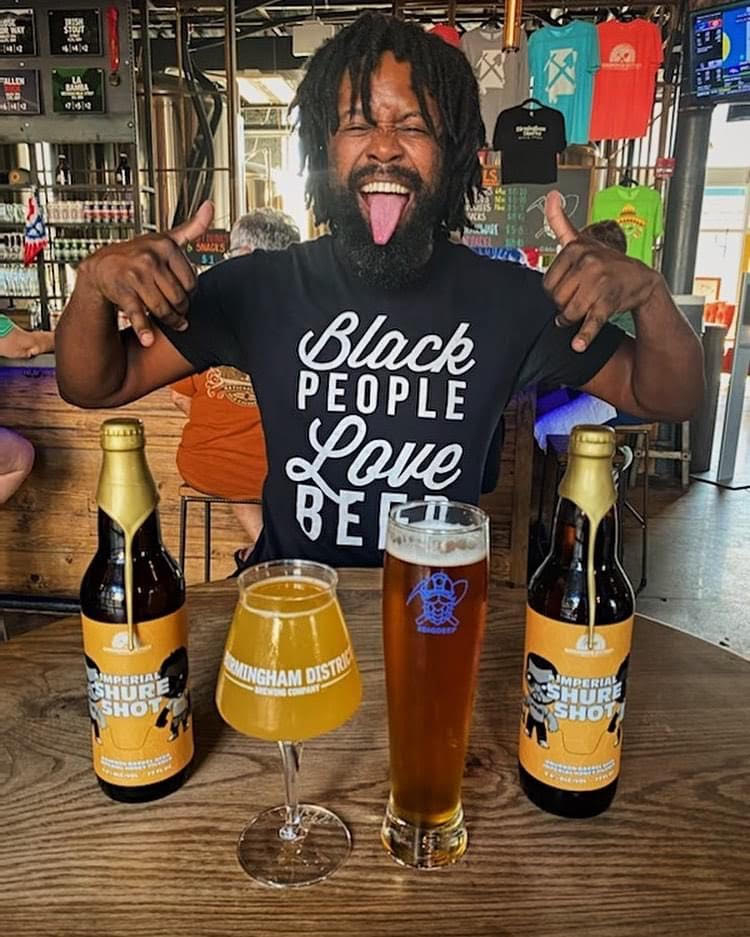
Early on, one of the most common things Marion was met with was, “I don’t like beer,” he said. But he quickly turned those conversations into, “You haven’t found what beer you like yet.” He said that his favorite aspect of craft beer, and the reason his hobby turned into a passion, is for the community that beer brings.
“It’s simple,” Marion said. “You walk through the door, get welcomed, grab a seat at the long bar and before you know it you’re talking to the person beside you—of totally a different background—because of what’s in the glass. Obviously, the beer matters, but everything that happens around the glass and through community is important, too.”
Can you discuss some of the projects and collaborations you’ve done with breweries?
Marion told us about brew day collaborations with local breweries from Birmingham District Brewing to Cahaba Brewing. Last year he did a collab with Elsewhere Brewing, in Atlanta, for its Blacktoberfest release to raise awareness of diversity in the industry.
He mentioned that his favorite collab so far was an Imperial Fudge Brownie Milk Stout with Good People Brewing, in honor of his great-grandmother. He considered the collaboration special because he was, for the most part, responsible for the recipe, which brought back childhood memories of brownies in the kitchen. It was a hell of an event, we were told.
Lastly, in a little bit of a reflection while looking ahead, where do you feel like the industry is, and where would you like to see it be in the next three to five years locally.
In reflection of his almost decade in the industry (coming up in September 2025), Marion said: “I think it just shows how much potential is still here. Yes, overall the industry is more diverse locally than when I first got into it, but that doesn’t mean that it’s perfect or we should stop trying.”
He said that in the day-to-day management of Hop City, he sees more diversity in the people who sit on the bar stools, but not necessarily among the industry—people from the sales reps to the distributors.
“It’s awesome to see more people of color coming in, having a beer or two and taking meetings at the bar,” Marion said. “I just hope that in the next few years the industry continues to grow in a way that I start seeing more people who look like me coming in to sell us beer or working in production and repping their brands and maybe not being a driver or warehouse employee. Hell, hopefully we will get black-owned breweries. I know that it’s something I haven’t ruled out down the road.”
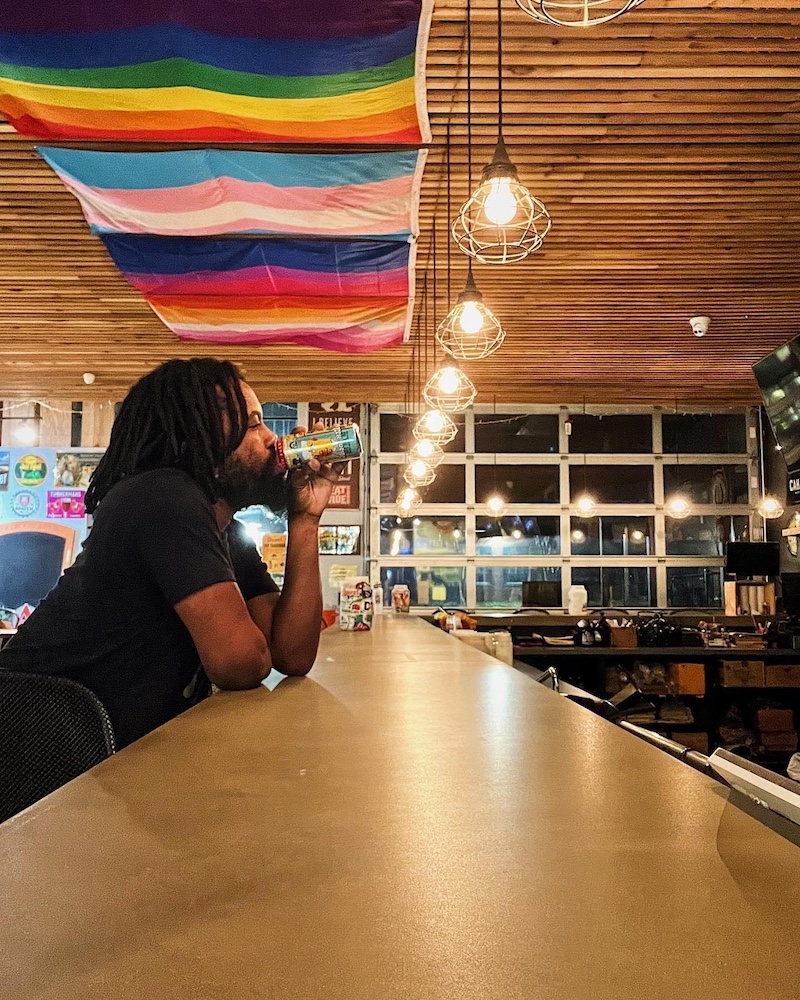
“I think it’s all about showcase and opportunity,” Marion said.
We asked him to elaborate, to which he said: “In today’s world you gotta show it, you know? Whether that be through social media or actually staffing people of color in front-facing positions so that people see them and feel comfortable in your space. That’s what matters—people feeling comfortable around beer. You gotta give people the opportunity to figure out if they like it without ever being written off beforehand. At the end of the day, just prove it.”
At the end of the day, Birmingham, and Alabama as a whole, is still a relatively young craft beer market. That’s not an excuse, but rather a hope that as the industry grows and more and more people of all backgrounds enjoy and get into beer, that hopefully the diversity grows alongside it. For anyone wanting to have a beer with @beeredblackman, he’d love to pour you a pint next time there’s an empty bar stool.
Feature photo courtesy of Ralph Marion, @beeredblackman


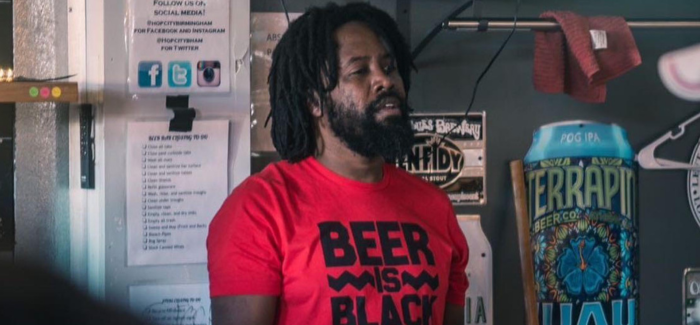

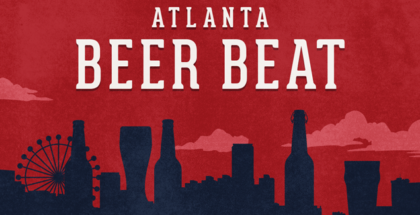
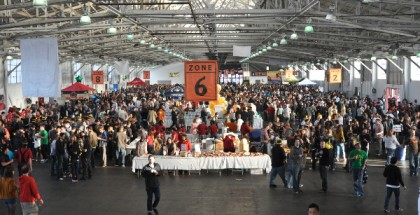
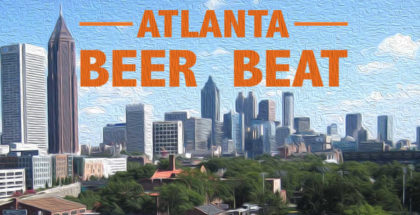
Submit a Comment